
NEWS CENTER
With The Explosive Growth In Electric Vehicle Production, Governments Across Europe And The United States Have Recently Introduced New Subsidy Policies For Charging Stations.
Data indicates that Europe and the United States, as the world’s second and third largest new energy vehicle markets, have seen their domestic charging infrastructure development lag significantly behind the growth rate of new energy vehicles. The disparity in the vehicle-to-charger ratio is pronounced, creating substantial room for expansion in the charging station market across Europe and America.
To address this challenge, governments in multiple countries have rolled out a series of supportive policies to accelerate the construction of domestic charging networks. These measures include tax credits, government investments, and individual subsidies.

I. United States:
In November 2021, the U.S. government enacted the Bipartisan Infrastructure Law, allocating $7.5 billion in dedicated funding to deploy 500,000 public charging stations for a nationwide EV charging network.
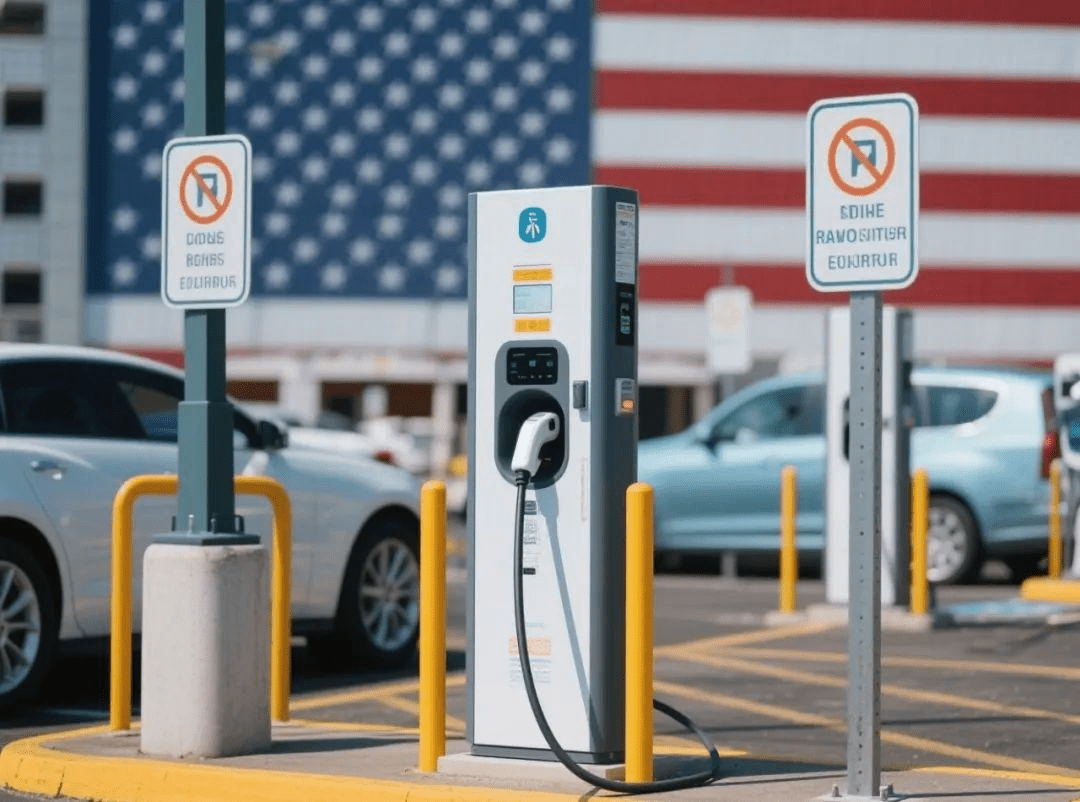
① NEVI Program ($5 billion): A five-year formulaic grant focusing on charging infrastructure along interstate highways, covering rural areas, underserved regions, and remote locations.
② Competitive Grant Program ($2.5 billion): Prioritizes community charging facility construction and transportation corridor charging node deployment.
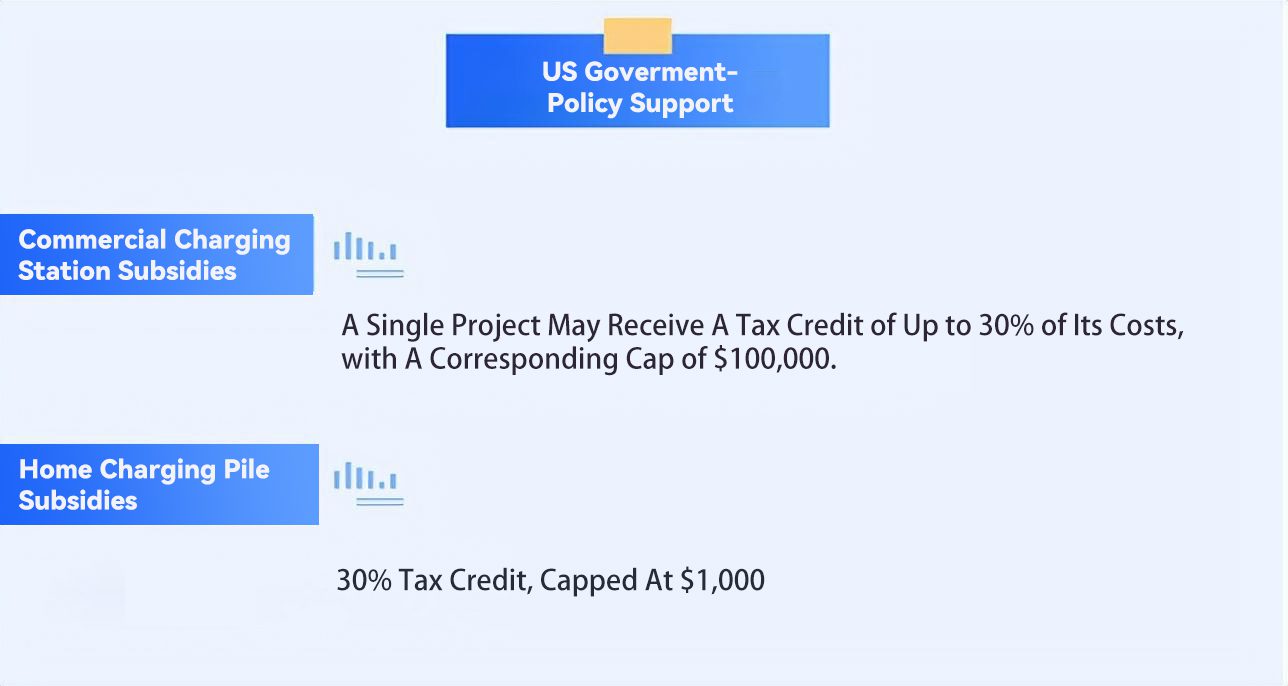
II. Spain:
① Launched the MOVES Program in 2019, allocating €45 million to promote new energy vehicles and charging infrastructure in public domains.
② Initiated the MOVES-2 Program in 2020, securing €100 million for charging infrastructure development and new energy vehicle acquisitions.
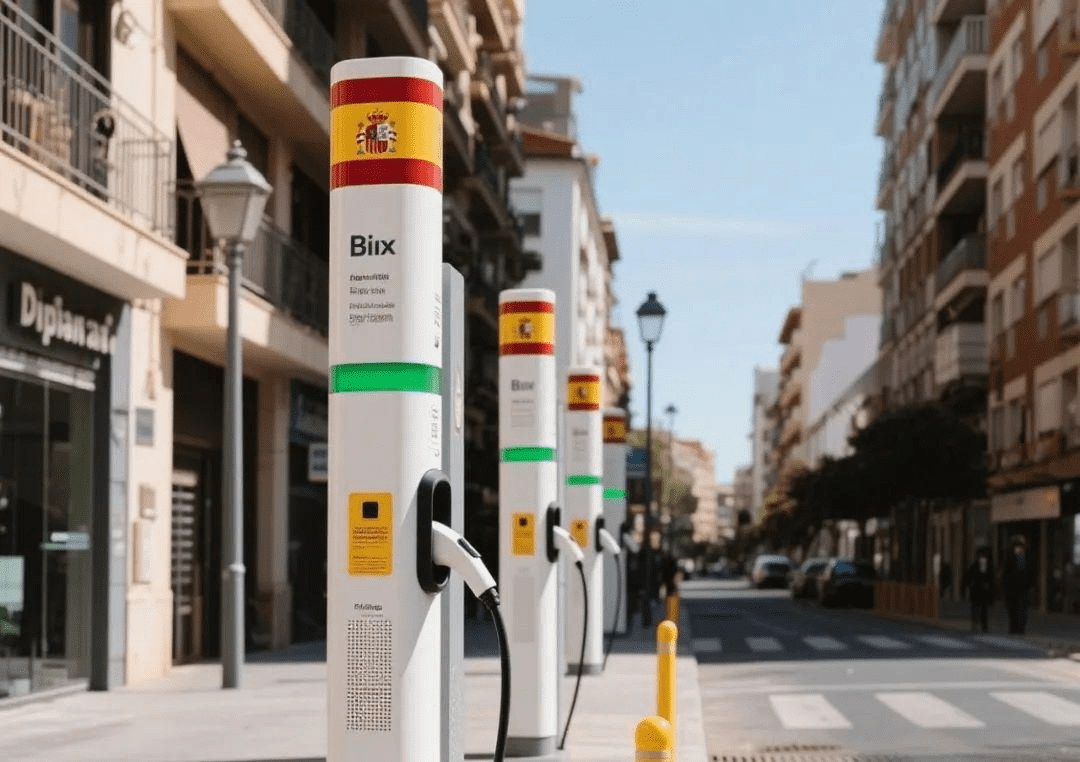
③ Launched the MOVES-3 program in 2021, delegating management responsibilities to local authorities based on previous initiatives.
④ Extended the MOVES-3 program in 2025 with an additional €400 million in funding.
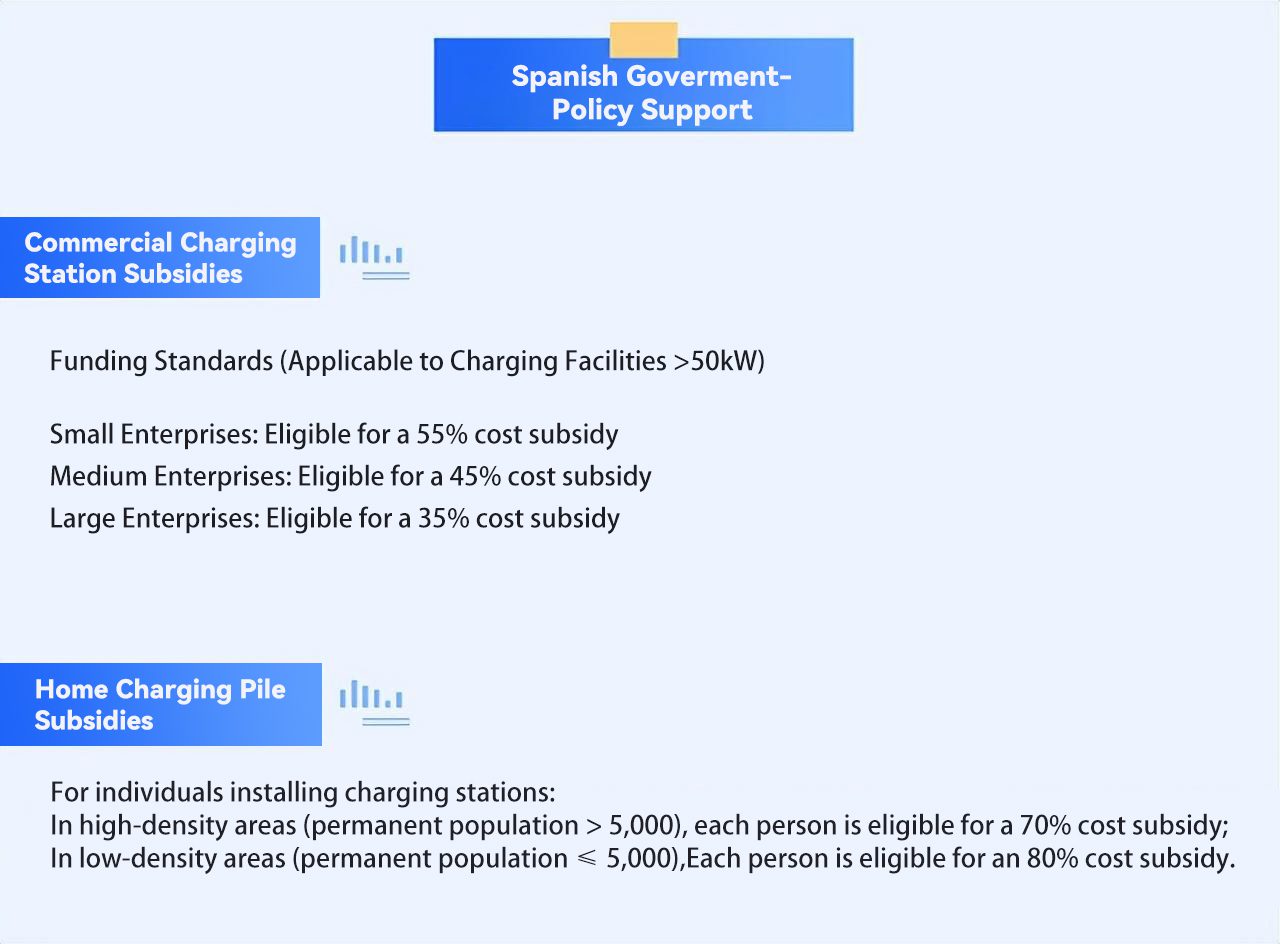
III. The UK
government released the Electric Vehicle Infrastructure Strategy, planning to invest at least £1.6 billion to expand the charging network. It aims to increase the number of electric vehicle charging stations tenfold by 2030 and complete the installation of over 6,000 fast-charging points on England’s motorways by 2035.
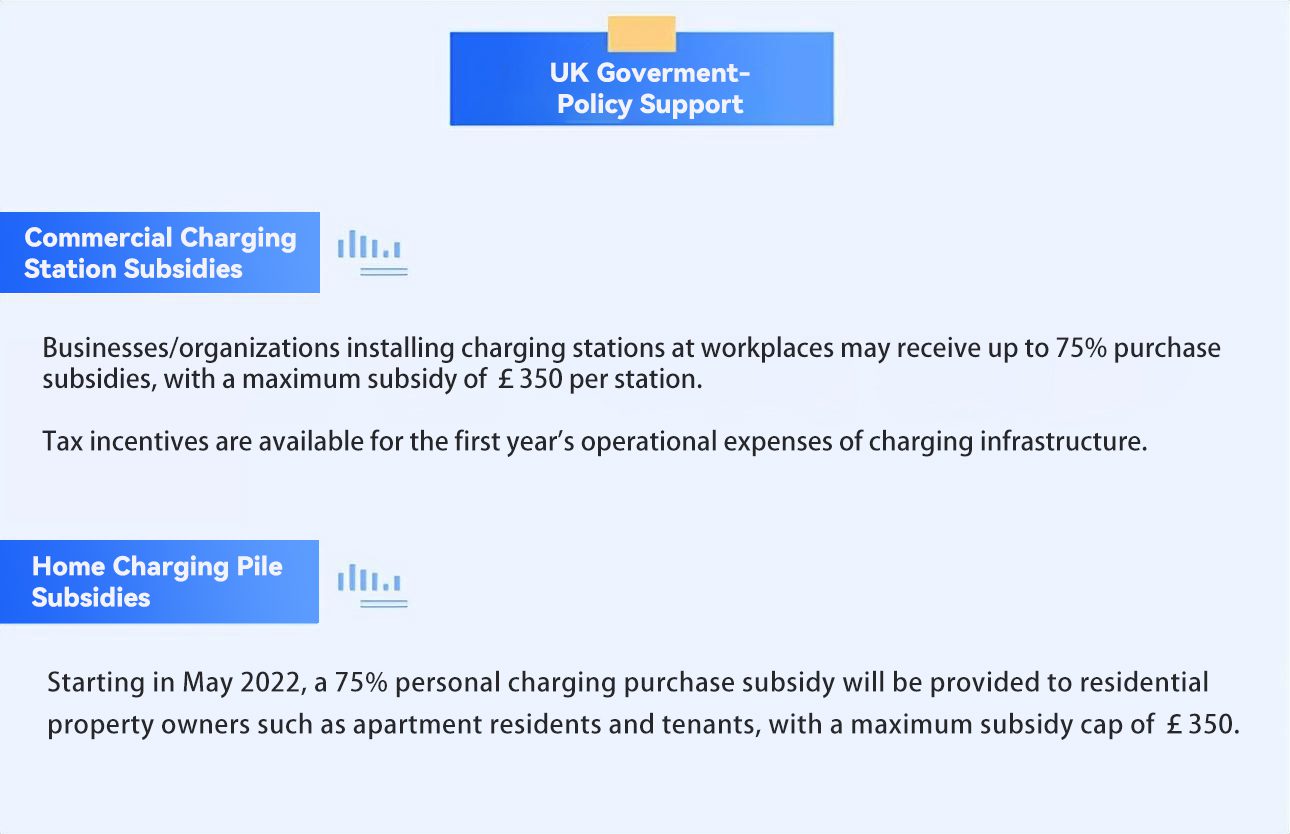
IV. Ireland:
To promote electric vehicle adoption, the Irish government introduced incentives in its 2025 budget, including extending non-cash benefits for EVs and exempting cash benefit tax on EV charger installations starting next year.
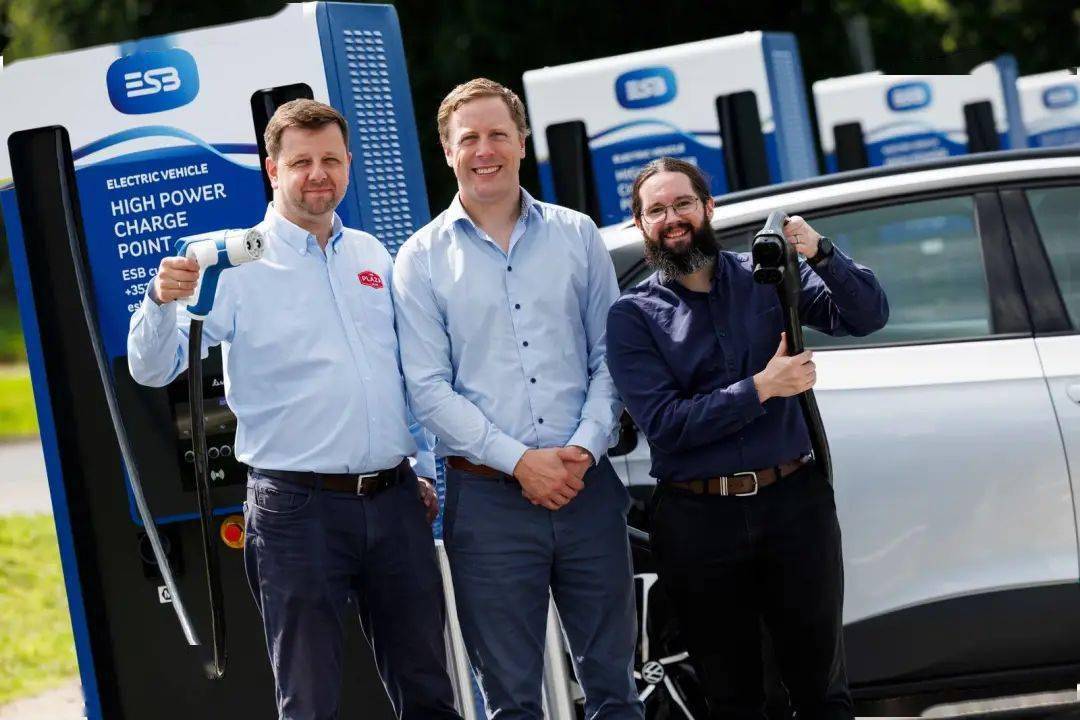
Additionally, state-owned electricity provider ESB recently announced that due to declining wholesale energy costs, Irish EV charging rates will decrease by up to 13% starting in 2024.
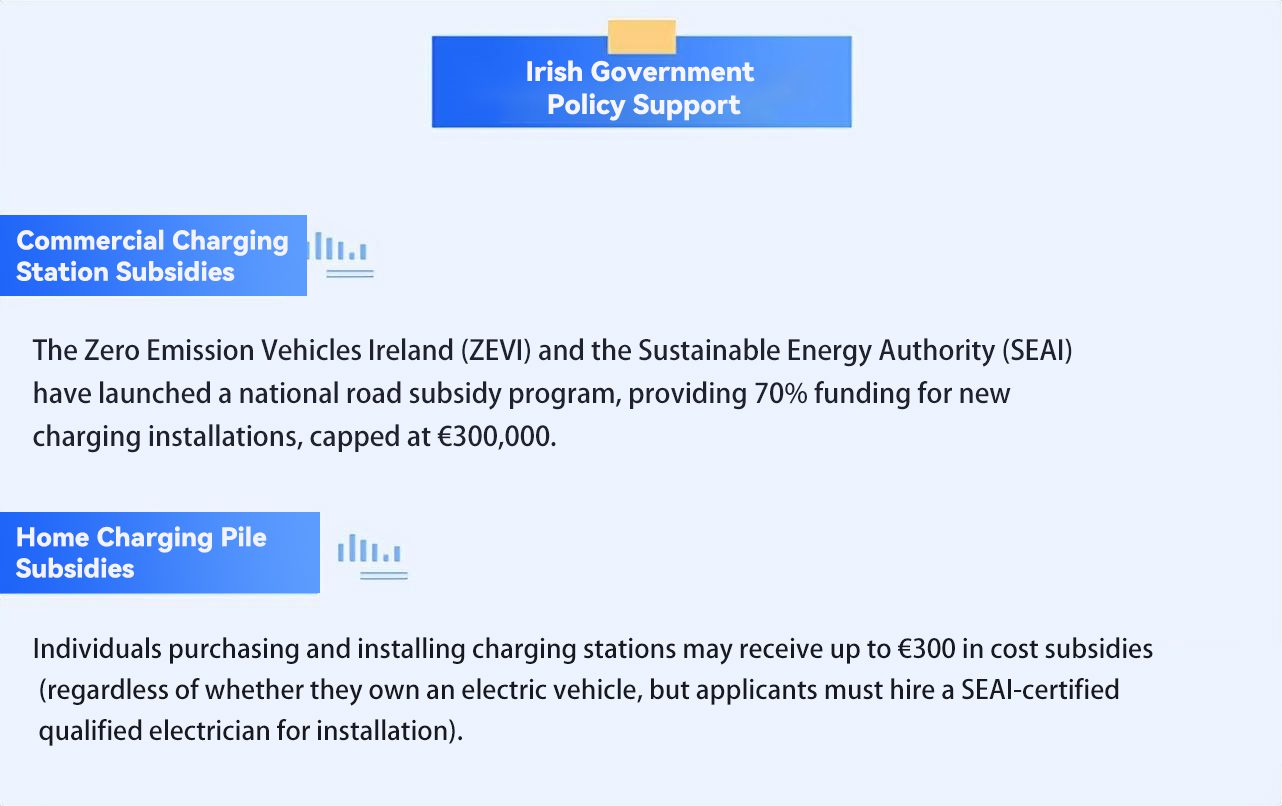
V. France:
According to Le Figaro, to address challenges posed by the 2035 internal combustion engine vehicle sales ban, the French government will allocate an additional €200 million in public subsidies to the “Charging Infrastructure Plan.” This supports user-funded installations of home and street charging stations, as well as the development of dedicated charging infrastructure for heavy-duty trucks.
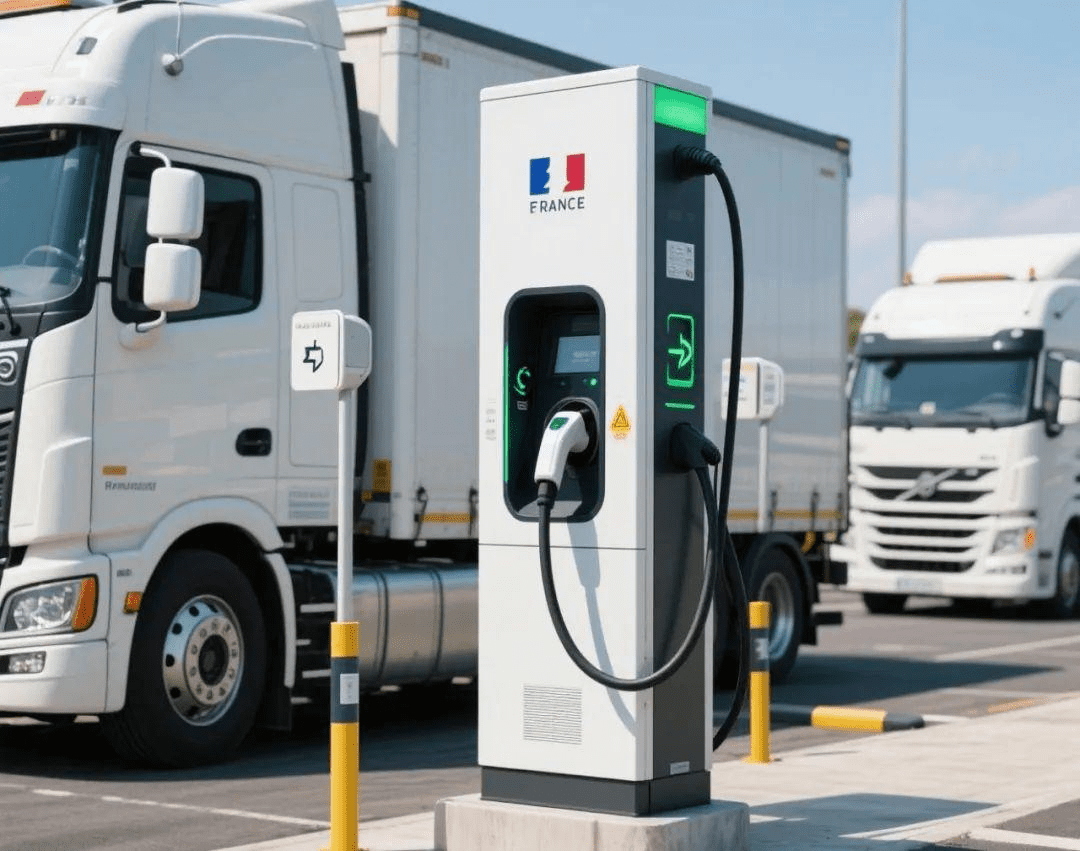
In line with President Macron’s designated target, France aims to establish 400,000 public charging stations by 2030.
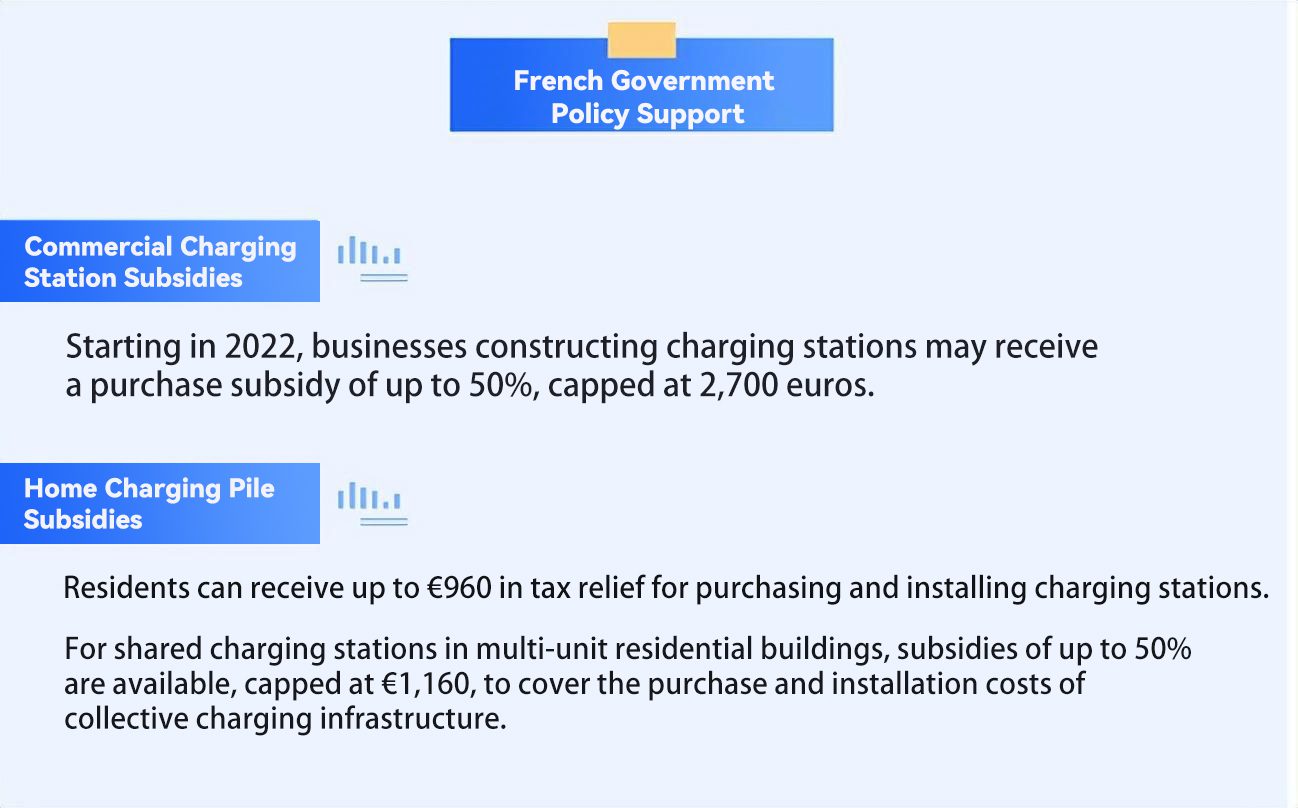


































.png) PV-Storage-Charging
PV-Storage-Charging-1.png) High & Low Voltage Switchgear
High & Low Voltage Switchgear Company Profile
Company Profile News Information
News Information Service Support
Service Support Cloud Platform Customized Development
Cloud Platform Customized Development Leisheng Charging International Platform
Leisheng Charging International Platform Leisn Home Charging Platform
Leisn Home Charging Platform